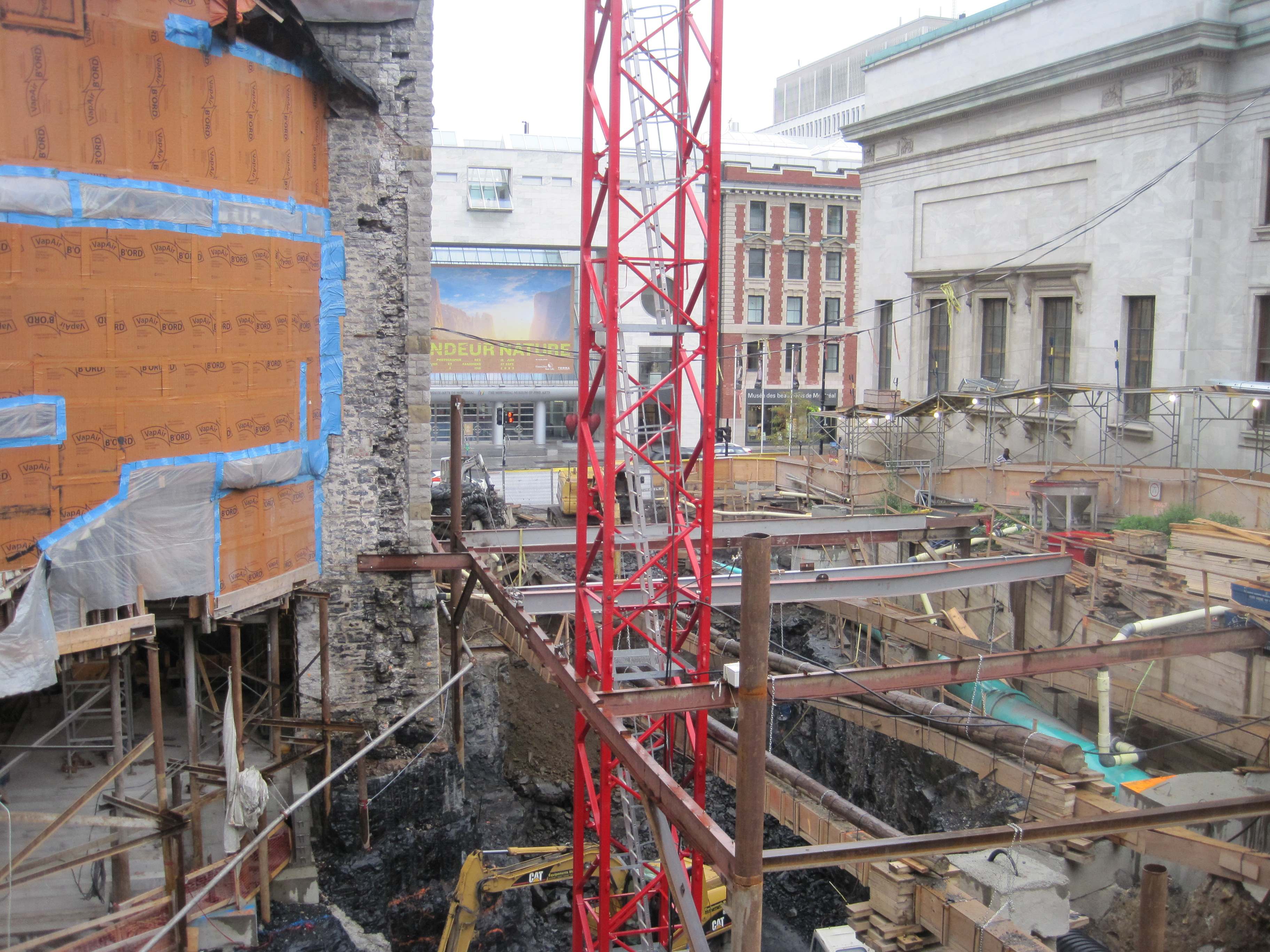Unions and Firms Share the Blame for Montreal’s Traffic Disaster
I just got back from Montreal, and it’s spectacular — a kind of Old World feel mixed with hipster moxie that I don’t think you find anywhere else in North America. But there’s a problem in Montreal, one that’s impossible not to notice: the entire place seems like it’s under construction. More accurately, every road and bridge is set up for construction, and on rare occasions you might see a construction worker.
We came into the city via the Champlain Bridge. I’ve been over major bridges under construction before, and it’s never fun, but this can only be described as post-apocalyptic (not to mention maddening): cars and trucks barely moving, unsure how many lanes there actually were, hanging over 100 feet in the air.
The construction in the city itself is far less terrifying, but still maddening. Residents seem to exist somewhere on a continuum between anger and resigned acceptance. What’s going on here? The weather certainly doesn’t help, as the winter extends notoriously late in the year. But Montreal’s government, unions, and construction firms are all at the heart of the real problem.
Unions and construction firms have both morphed into organizations primarily concerned with influencing local and provincial government. Google “Montreal construction strike” and the dropdown menu will ask you whether you mean the one in 2013, 2014, or 2017. Oh, and there was the wildcat strike of crane operators back at the Champlain Bridge that ended last month after the Quebec government and even union leadership had enough.
Quebec’s unions have carved out extraordinary power in monopolizing government contracting, often called the most extensive union powers anywhere in North America. They certainly aren’t afraid to slow down construction around the city in order to wield that power.
But the unions may have actually comported themselves well compared to the construction companies. Bribes, gifts, and kickbacks from construction magnates and even mob bosses to Quebec officials seems to have become commonplace. A probe operating since 2011 has resulted in 114 convictions and is taking heat for the number being far too low.
There’s plenty here to satisfy both union-hating conservatives and progressives decrying corporate greed. But the common element seems to be that friction point where big business or big labor meets big government — you know, the thing endowed with the wealth and power to hand out billions of dollars in contracts? Obviously, it’s become more profitable for both unions and construction firms to focus their efforts on the officials doling out those contracts rather than actually doing good construction.
That viewpoint crystalized for me when an art-and-collectibles store owner struck up a conversation while I admired his $200 framed sheet of vintage Garbage Pail Kid stickers, which I really should have bought. He launched into a tirade about trash collection in his neighborhood, which, as you may have guessed, leaves something to be desired. He blamed private companies, now in charge after being contracted by the city. He was even selling postcards featuring Montreal litter.
But it’s the giver of that trash-collection contract that may be the problem. If the store owner and his fellow owners of small businesses owned the space in front of their shops, they would have the incentive and ability to hire a company they could monitor that would likely keep the streets far cleaner.
I don’t know quite how to translate this idea to massive infrastructure projects. But it’s often the power and wealth with which we endow the government that businesses or unions behaving badly are fighting over.
I haven’t exactly written a travel brochure for Montreal here, and that’s too bad, because it’s a wonderful city everyone should see. Just remember to make a bathroom stop before the Champlain Bridge.












